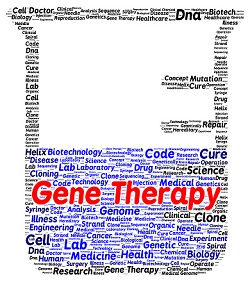Pavilion Publishing and Media Ltd
Blue Sky Offices Shoreham, 25 Cecil Pashley Way, Shoreham-by-Sea, West Sussex, BN43 5FF, UNITED KINGDOM
 Patients with the most severe form of the immune condition Wiskott Aldrich Syndrome have been successfully treated using gene therapy at Great Ormond Street Hospital.
Patients with the most severe form of the immune condition Wiskott Aldrich Syndrome have been successfully treated using gene therapy at Great Ormond Street Hospital.
The treatment, reported in the journal JAMA, meant that the children went from spending an average of 25 days in hospital in the two years prior to gene therapy to no days in the hospital in the two years after the treatment. It also allowed for one child who was confined to a wheelchair to return to normal physical activities without the use of the chair.
Wiskott Aldrich Syndrome (WAS) is a genetic condition that affects between one and 10 children in every million worldwide and reduces their ability to fight infection. Symptoms can include bleeding episodes, eczema and other recurrent skin infections, and autoimmune disease although there is a broad spectrum of severity within the disease with some children being more affected than others. The most severely affected children often need to spend time in hospital.
The condition can be treated successfully by giving children a bone marrow transplant where faulty immune cells are replaced by working donor cells, although this relies on donors being a good match for patients. Without transplantation, patients with WAS often don’t survive in to their twenties. Gene therapy has therefore been trialled as an alternative treatment in patients but previous attempts that have shown some clinical benefit have also led to severe side effects.
A new study uses state-of-the-art technology to treat patients with a very severe form of the disease, for whom conventional bone marrow transplantation is not possible or would pose a high risk.
A research team based in London, in collaboration with a centre in Paris and the trial sponsor Genethon, studied seven children, aged between 8 months and 15 years, who all had a severe form of the disease and no matched bone marrow donor. All the children had eczema and associated recurrent infections and most experienced severe bleeding and autoimmune disease that, in one case, confined the child to a wheelchair.
After gene therapy with a newly developed vehicle to deliver the gene in to the body, the children showed remarkable restoration of their immune systems and clearance of the majority of symptoms. Over a period of two years, patients went from spending an average of 25 days in hospital before the gene therapy to 0 days in the hospital afterwards.
Adrian Thrasher, Professor in Paediatric Immunology at GOSH and author of the research says: “The work shows that this method is successful in patients who, in the past would have very little chance of survival without a well match bone marrow donor.”
“If the positive effects of the treatment can be maintained even further in the future, it will provide confirmation that gene therapy can provide a ‘cure’ for this life limiting condition and for many other similar bone marrow disorders.”


